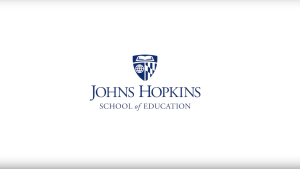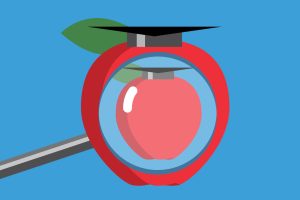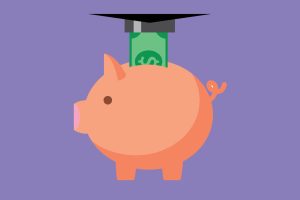Application Details
Prerequisites to Apply
Hold a bachelor’s degree from a regionally or nationally accredited college or university. Earned minimum cumulative grade point average of 3.0 (on a 4.0 scale) in all previous undergraduate and graduate studies (including for incomplete programs of study and for programs still in progress).
Application Requirements and Deadlines
| MS in Special Education — Severe Disabilities | |
|---|---|
| Application Deadline | July 15, 2026 |
| Application Requirements | Online application form |
| $80.00 application fee | |
| Resume/CV: To be uploaded to your online application form. | |
| Official transcripts from all post-secondary institutions attended. | |
| Essay: To be uploaded to your online application form. Upload a 500-word essay discussing why you wish to pursue a degree at Johns Hopkins University, focusing on your long-term goals and how your academic program will complement those goals. Discuss the strengths and weaknesses in your educational background, as well as any additional comments that will assist in evaluating your application materials. Essays should be submitted in a typed format on a separate sheet of paper. |
|
| Letters of Recommendation: Two letters of recommendation from individuals who can speak to your work with children with disabilities. After entering the contact information for your recommendation providers within the online application, each provider will receive an email with instructions about logging onto our system. At that time, they will have the opportunity to fill out the Recommendation Form and upload a recommendation letter. Providers should use the online application form to upload and send their recommendation letters. Applicants should request recommendation letters that directly address their candidacy for admission to this program. Ideally, individuals selected to provide letters should include those from both academic and professional settings. It is acceptable for candidates who have not been enrolled in post-secondary-level courses for several years to substitute letters from professional contexts. |
|
| Interview: Applicants who meet admission requirements will be asked to interview (in-person, Zoom, or phone) to ensure that their goals align with the program’s goals before an offer of admission. | |
Tuition and Fees
Tuition and fees are subject to change for ensuing academic years and will be updated on the School of Education website accordingly.
Financial Support Options
The Johns Hopkins School of Education offers a range of financial aid options, including grants, scholarships, federal loans, and work-study programs, to help you fund your education.
Admissions Webinar

More Information
Baltimore, MD 21209
Suite M-500
What to Expect
Student Outcomes
Graduates of the MS in Special Education — Severe Disabilities (Applied Behavior Analysis) program have a competitive edge in the number of career opportunities available.
- Special Education Teacher
- Behavior Analyst
- Administrator of Special Education Programs
- Behavior Support Specialist
- Special Education Advisor for Departments of Education
- Autism Support Specialist
- Autism Consultant Teacher
Learning Outcomes
By completing the coursework and, if elected, the additional practicum requirements for this degree program, candidates will acquire the competencies to:
- Define, demonstrate, and apply the concepts and principles of ABA within an educational setting
- Utilize research methods to evaluate and measure the effectiveness of intervention and instructional procedures
- Complete behavioral assessments to identify the effective instructional program or behavior reduction plan in an educational setting
- Design, implement, and evaluate an instructional program based on assessment results to increase a desired behavior or skill for an individual student or a group of students in an educational setting
- Design, implement, and evaluate a behavior reduction program based on assessment results
- Define and practice within the Professional and Ethical Compliance Code for Behavior Analysts, as evidenced by completing coursework and practicum requirements when elected
- Implement, manage, and practice applied behavior analysis in an educational setting as evidenced by completing coursework and practicum requirements
- Demonstrate knowledge and skills as outlined by the CEC’s Advanced Specialty Set: Special Education Behavior Intervention Specialist
- With completing coursework and practicum requirements, take and complete the Behavior Analyst Certification Board (BACB) exam as evidenced by a passing score (set by the BACB)
What is Applied Behavior Analysis (ABA) in special education?

Applied Behavior Analysis (ABA) is a therapeutic approach commonly used in special education to help students with disabilities, particularly those on the autism spectrum, develop new skills, improve communication, and reduce challenging behaviors.
ABA uses evidence-based strategies to break down complex skills into manageable steps, reinforce positive behaviors, and track progress over time. In graduate programs, such as a master’s in special education with a specialization in severe disabilities (applied behavior analysis), students gain advanced training in these methods to design and implement effective, individualized interventions.
What is the cost of a master's degree in ABA?

The cost of a master's degree in special education with a specialization in severe disabilities (applied behavior analysis [ABA]) can vary.
The cost of a master's degree in special education with a specialization in severe disabilities (applied behavior analysis [ABA]) can vary depending on factors such as the institution, program duration, and location. On average, tuition for an ABA master's program can range from $20,000 to $60,000 or more. At the Johns Hopkins School of Education, resources for financial aid, loans, scholarships, and other sources of funding are available to help you navigate your finances.
What is a BCBA in special education?

BCBA stands for “Board Certified Behavior Analyst.”
In special education, a BCBA is a professional who has earned certification from the Behavior Analyst Certification Board. BCBA practitioners use principles of applied behavior analysis to assess and support students with behavioral and developmental challenges, designing behavior intervention plans and providing behavior therapy to improve behavior and learning outcomes.
How do you get certified in Applied Behavior Analysis (ABA)?

To become certified in Applied Behavior Analysis (ABA), you typically need to complete a graduate-level program in behavior analysis, education, psychology, or a related field that includes coursework approved by the Behavior Analyst Certification Board (BACB).
You must also gain supervised field experience, meeting the BACB’s required number of hours. After completing these steps, you’ll take and pass the Board Certified Behavior Analyst® (BCBA®) exam. Certification requirements can vary by state.
International Applicants
This program offers part-time enrollment only. Admission is not open to international applicants seeking an F-1 or J-1 visa for this program. International students interested in applying to a program at the Johns Hopkins School of Education must follow the same application process and submit the same general application materials as their peers, along with some additional requirements.
International Student Admissions
Please visit the International Student Admissions webpage for additional application requirements or information.


International Student Admissions
Please visit the International Student Admissions webpage for additional application requirements or information.


Legal Disclosure
Legal Disclosure
State Authorization Disclosure Regarding Educational Prerequisites
Federal regulations require Johns Hopkins to disclose to students considering enrollment or enrolled in this program whether or not it meets educational prerequisites for licensure or certification by state. Educational Prerequisites for Professional Licensure or Certification.
Educational Prerequisites for Professional Licensure or Certification
(1) This program is categorized as non-certification and does not satisfy the educational prerequisites for initial teacher certification for the state of Maryland’s Special Education Generic or Severely & Profoundly Disabled certification areas.
Students interested in applying for Board Certified Behavior Analyst® (BCBA®) Certification following the successful completion of this degree program are encouraged to visit the following professional associations for information on state requirements.
BACB – Behavior Analyst Certification Board
Licensure Requirements for Behavior Analysts by State
Students located in a state where their program does not meet that state’s licensure or certification educational prerequisites may have difficulty finding a job in that occupation and/or repaying loans borrowed to complete the program.